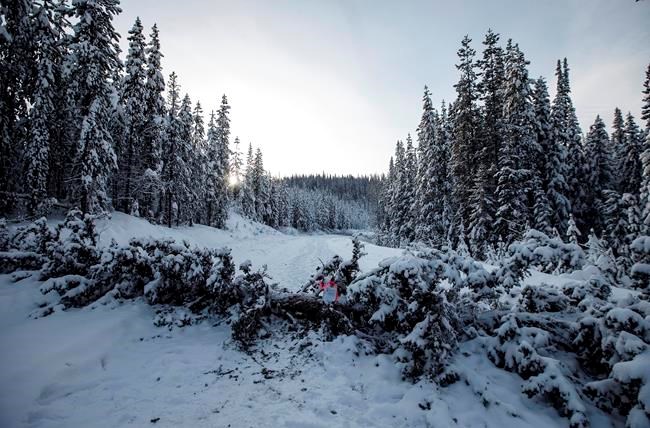British Columbia’s human rights commissioner is defending herself against accusations by Indigenous supporters of the liquefied natural gas industry that she didn’t do her research before wading into a pipeline dispute.
Karasi Govender said in a statement that she “unreservedly” recognizes that some band councils along the Coastal GasLink pipeline route in northern sa���ʴ�ý have consented to the project.
But she said just as those bands have the right to give their consent, other Indigenous rights-holders affected by the project have the right to withhold it.
From a human rights perspective, Govender says it’s not a numbers game and each person’s rights should be protected even if their position is unpopular.
Coastal GasLink has signed agreements with all 20 elected First Nations councils along the 670-kilometre pipeline path, but the hereditary clan chiefs of the Wet’suwet’en Nation say the project has no authority without their consent.
The First Nations LNG Alliance issued an open letter this week to Govender saying she never consulted Indigenous groups that support the pipeline when she called for the free, prior and informed consent of all affected Indigenous groups before any project affects the land.
CEO Karen Ogen-Toews said in the letter it was disheartening to see that the Indigenous support, achieved through five years of consultation, was “so easily dismissed.”
“Human rights do not exist for the majority, they exist for each individual and in the case of free, prior, and informed consent for each Indigenous rights-holding group,” Govender said in her response.
“Indeed, human rights are the hardest to guarantee for those who find themselves in an unpopular minority, but this is when our commitment to human rights principles are truly tested.”
As commissioner, she said she takes no position on whether major natural resource projects should move forward, except in so far as they are required to uphold domestic and international human-rights principles.
She calls for a peaceful resolution to the situation unfolding in Wet’suwet’en territories and says reconciliation and human rights must be the first consideration.
The First Nations LNG Alliance also issued an open letter to the United Nations Committee to End Racial Discrimination critical of its calls to stop the pipeline project, the Site C hydroelectric dam construction and Trans Mountain pipeline project until the free, prior and informed consent of affected Indigenous groups is granted.
“The Alliance was shocked to see the committee issue its ‘decision statement’ concerning the Coastal GasLink pipeline without investigation or research, and without taking into account the extent of existing First Nation support for the pipeline, and without consultation with those Nations,” the letter said.
No one from the committee was immediately available for comment, but a former member said a working group spent several months studying the matter.



